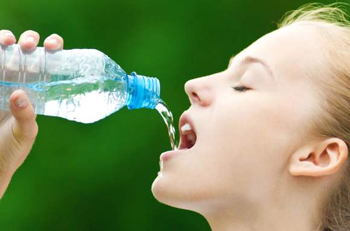
Washington, Jan 27: Scientists have identified neurons that trigger our sense of thirst and those that turn it off.
For years, researchers have suspected that thirst is regulated by neurons in the subfornical organ (SFO), in the hypothalamus. But it has been difficult to pinpoint exactly which neurons are involved.
“When researchers used electrical current to stimulate different parts of the SFO of mice, they got confusing results,” said lead author Yuki Oka, a postdoctoral research scientist in the laboratory of Charles S Zuker, a Howard Hughes Medical Institute Investigator at Columbia University Medical Center (CUMC).
The CUMC team hypothesised that there are at least two types of neurons in the SFO, including ones that drive thirst and others that suppress it.
“Those electrostimulation experiments were probably activating both types of neurons at once, so they were bound to get conflicting results,” said Oka.
To test their hypothesis, Oka and Zuker turned to optogenetics, a more precise technique for controlling brain activity. With optogenetics, researchers can control specific sets of neurons in the brain after inserting light-activated molecules into them.
Shining light onto these molecules turns on the neurons without affecting other types of neurons nearby.
These “mind-control” experiments revealed two types of neurons in the SFO that control thirst: CAMKII neurons, which turn thirst on, and VGAT neurons, which turn it off.
When the researchers turned on CAMK11 neurons, mice immediately began to seek water and to drink intensively.
This behaviour was as strong in well-hydrated mice as in dehydrated ones. Once the neurons were shut off – by turning off the light – the mice immediately stopped drinking.
The researchers also found that light-stimulation of the CAMKII neurons did not induce feeding behaviour. In addition, light-induced thirst was specific for water and did not increase the animals’ consumption of other fluids, including glycerol and honey.
Similar experiments with VGAT neurons showed that these neurons act to turn off thirst. When the researchers turned on these neurons with light, dehydrated mice immediately stopped drinking, even if they were drinking water.
“Together, these findings show that the SFO is a dedicated brain system for thirst,” said Oka.
“The SFO is one of few neurological structures that is not blocked by the blood-brain barrier – it’s completely exposed to the general circulation,” said Oka.
“This raises the possibility that it may be possible to develop drugs for conditions related to thirst,” Oka added.





Comments
Add new comment